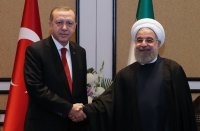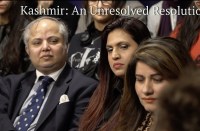Votes are currently being tallied in an Egyptian Presidential election whose foregone conclusion will make the incumbent Abdel Fattah el-Sisi’s inevitable victory something of an anti-climax. His only opponent Moussa Mostafa Moussa was himself a Sisi supporter, thus making the election more of a referendum on Sisi’s rule than anything else.
Throwing stones at Egypt from electoral glass houses
Ironically, international critics opposing Sisi’s “election” are more often than not, from countries which themselves are effectively ‘one man’ or ‘one party’ states, even if such states manage to occasionally pull off “elections” that are more diverse in appearance than Egypt’s low-effort election process. Crucially, while I personally admit that Egypt’s election was a kind of charade in a literal sense, I also objectively acknowledge that some of the most functional, prosperous, stable and peaceful states in the world are those governed either by a single party or a dominant leader whose ‘democratic’ dislodging would be unthinkable. In this sense, one must also acknowledge that while democracy means ‘rule of the people’, multi-party/multi-candidate elections are not always (though they can be) the best barometer which can be used to determine what the people actually want. China for example, while technically a multi-party state, is perennially governed by the powerful Communist Party of China. Yet not only is China stable, peaceful, prosperous and possibly the most civilised nation in the world, but its economic strides have led many throughout the world to wish their own countries were more like China.
The Problem With Democracy Is That People Have Forgotten What It Means
Sisi embraces multi-polar style relations with China, Russia and the USA
Sisi’s primary task, as it is for most leaders, will be to secure post-election support both domestically and internationally. Under Sisi, Egypt has largely politically and socially recovered from the tumult of rule by the once again illegal Muslim Brotherhood which briefly ruled the country between 2012 and 2013. There are still persistent problems of domestic and international terrorism in Egypt that were let out of the proverbial bag in 2011, but Sisi to his credit, is doing a better job than many could have done in working to fight this threat.
But with stability and a return to social normalcy, Sisi’s leadership has also seen both economic and geopolitical stagnation. While under the revolutionary leadership of President Gamal Abdel Nasser, Egypt was both the economic, military and geopolitical leader of the Arab world, today Egypt is largely dependent on the economic partnership (that many describe as aid) with Saudi Arabia, while at a geopolitical level, Egypt is no longer anywhere close to a leadership position when it comes to peace-making, power-brokering or even asserting its own foreign policy.
That being said, while Egypt’s role in the wider Arab world has been diminished and while much of this came about long before Sisi’s Presidency, Egypt’s role in balancing its own interests against those of the superpowers is in many ways, healthier than it has been at any time since the mid-1970s. Under Sisi, Egypt has reinvigorated once incredibly strong relations with Moscow, while China is also becoming an ever more important partner. All of this has happened while Cairo and Washington remain on good terms, not least because while Egypt has psychologically recovered from the catastrophe of a ‘regime change’ movement in 2011, the US under Donald Trump remains afraid to rock any political boats on the Nile, as well it should be, as Obama’s total mismanagement of relations with Egypt plunged the country into tremendous amounts of suffering. Therefore, Egypt’s ability to have good relations with China, Russia and the United States is not a feat to be scoffed at.
Re-connect with Syria and with Arab Nationalism
Egypt’s role in the Syria conflict was necessarily limited due to its own domestic turmoil during much of the duration of the war. Now however, Egypt has the opportunity to take a nuanced but clear leadership role and the way to achieve this is by participating in the Astana process, albeit at the level of an observer, but an important one nevertheless. Of the three Astana peace guarantors, Egypt only has healthy relations with Russia, while relations with Iran are poor and relations with Turkey are abysmal.
The Astana format would not be an appropriate place to try and foster detente with either Iran or Turkey, but as an observer to the Astana peace process, Egypt could help to gradually create a post-war environment where relations between Cairo and Damascus become not only normalised but enhanced. This would serve to partly quash the narrative that the Syria conflict is a Sunni/Shi’a dispute, through using Egypt’s soft power as a large secular Sunni majority state to help re-Arabise a post-war Syria that has been caught in the ideological cross-hairs of the manufactured Sunni/Shi’a divide.
While Iran is not likely to abandon its Syrian ally in a post-war environment and nor should it, an Egyptian role in post-war Syria could help off-set the optics of a Syria which is considered by many sceptics in the wider Sunni world to be in ‘the palm of Iran’. Such a win-win model would not only see Egypt regaining some of its diplomatic prestige in the Arab world, but it would demonstrate that Syria is ready to engage with old wayward partners, drawn back together not by religious sectarianism but by the cause of secular Arabism, of which Syria remains the most vocal exponent.
Such a process could not happen overnight, but gradually, with the help of Russia, Egypt could draw itself closer to its old fellow Arabist partner of past decades.
Utilise Russia and China to de-escalate tensions with Sudan
Egyptian-Sudanese relations continue to deteriorate, as the countries have numerous disputes over resources and border demarcations. At present, Sudan is pivoting back to its duel Cold War partners in both Moscow and Beijing, while President Omar al-Bashir has stated that he seeks to intensify relations with Russia at the expense of what he found to be an unreliable US partner.
At the same time Turkey has dramatically increased its relations with Sudan, much to the chagrin of Egypt. There is little chance that anyone could help Cairo and Khartoum to have positive relations, but China and Russia could help to moderate the situation, thus proving that the value of Beijing and Moscow in such conflicts is far more effective than that which the US could manage. Because the US is afraid to alienate Egypt and Sudan while not wanting to press Turkey in Africa, it naturally falls on Moscow and Russia to help alleviate these tensions.
Ultimately, if Egypt were to pivot its geopolitical interests back to the Levant, southern Europe and Asia, this would mean that Cairo could exculpate itself from its complex relationship with its southern neighbour, while leaving Russia and China to insure Egypt’s interests are not ignored in Egypt’s ‘near-abroad’ in Africa.
Russia as mediator in gas dispute with Turkey
Egypt and Turkey are also at odds when it comes to sovereignty over Mediterranean gas fields that are claimed mutually by Cairo and Ankara. Again, Russia is one of the few countries that is in a position to mediate in such a dispute not only because of its mutually good relations with Egypt and Turkey, but because of its substantial influence in the world of petro-politics.
Russia has a clear incentive for helping to resolve the various gas disputes in the eastern Mediterranean. Aside from bolstering the prestige of Russian “win-win” style diplomacy at the expense of an increasingly diplomatically impotent United States, Russia’s substantial energy sector would benefit from having multiple disputing countries, relying on a common Russian partner to help extract their gas deposits.
This way Russia and its Mediterranean partners could economically benefit from Russia’s diplomats turning a vocal dispute over territorial rights into a jump-started project to extract gas for the benefit of all the regional parties. While this will likely not guarantee a rapprochement between Egypt and Turkey, “Israel” and Lebanon or Cyprus and Turkey, it will in fact demonstrate the power of Russia’s ‘go-between’ diplomacy whereby countries that do not like each other, are able to communicate their positions to one another via neutral Russian intermediaries.
While Russia would still prefer to ease tensions in the wider Levant, the model Russia has implemented in Syria whereby Ankara and Damascus are able to speak to each other via Russia, while still refraining from publicly considering restoring relations, has been surprisingly effective in keeping possible warring parties out of each other’s way in the Syrian conflict.
Russia’s petro-politics in the eastern Mediterranean therefore has the potential to turn several new and increasingly heated disputes into a thaw based on mutual cooperation with friendly Russian diplomats and energy companies – all the while serving Russia’s own economic and geo-strategic interests in the region.
Offer to host a Yemen peace conference
While Egypt remains a strong Saudi ally, Cairo could never the less serve as a location for a would-be peace conference regarding the Yemen conflict. There is no guarantee that the anti-Saudi, Ansar Allah (Houthi) Movement would agree to come to Cairo for such a conference, but if other powers including Pakistan and Russia could work behind the scenes to secure Cairo as a geographically convenient and historically weighty venue for such an attempt at Yemeni peace. This would be good for Egypt’s prestige in the wider Arab world and would also help to show Riyadh that Egypt can play a vital role in diplomatic initiatives concerning Saudi Arabia and its opponents.
Conclusions
These are just some of the ways that Sisi can win back Egypt’s role as an important diplomatic broker in the Arab world while also diversifying Egypt’s geo-economic standing in the wider multipolar world. While many have written Sisi off as a man boxed into a corner, he should at least try to box himself out. The potential is far greater than many presently acknowledge.



